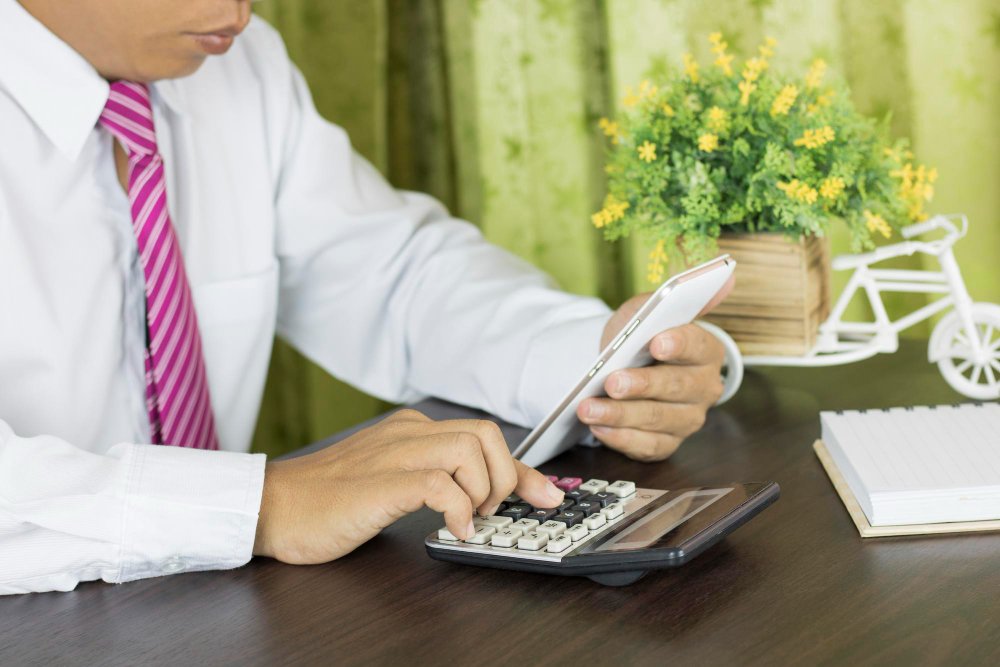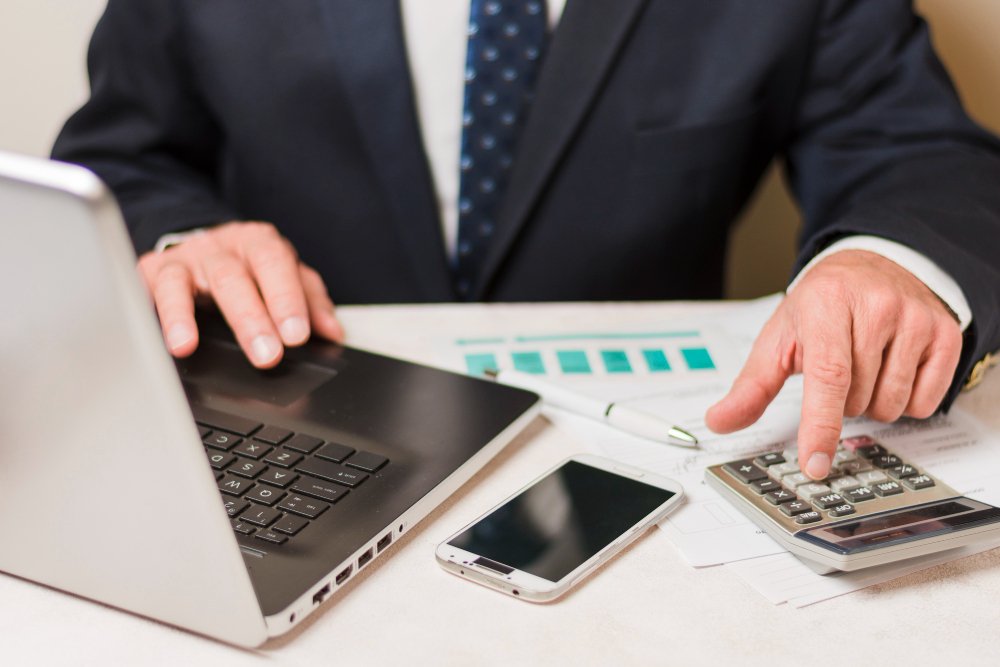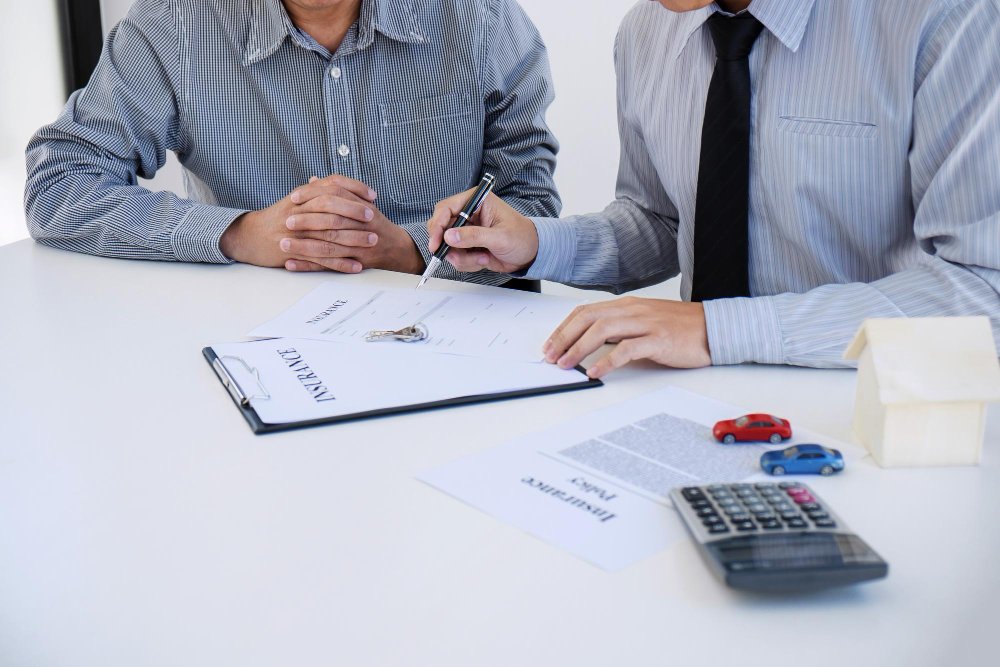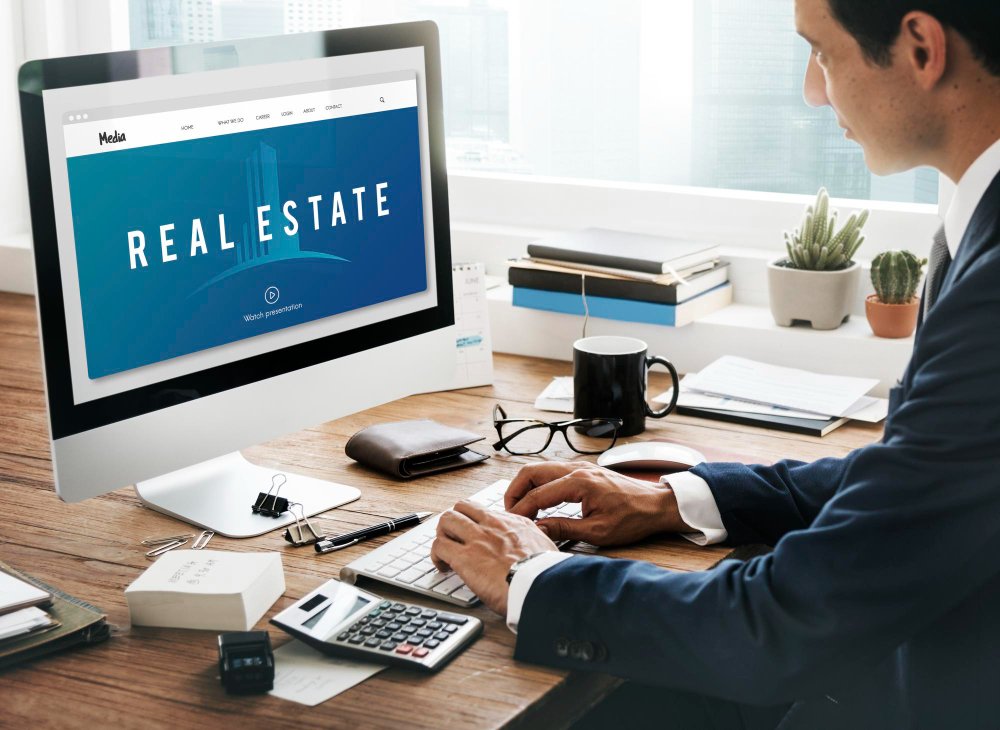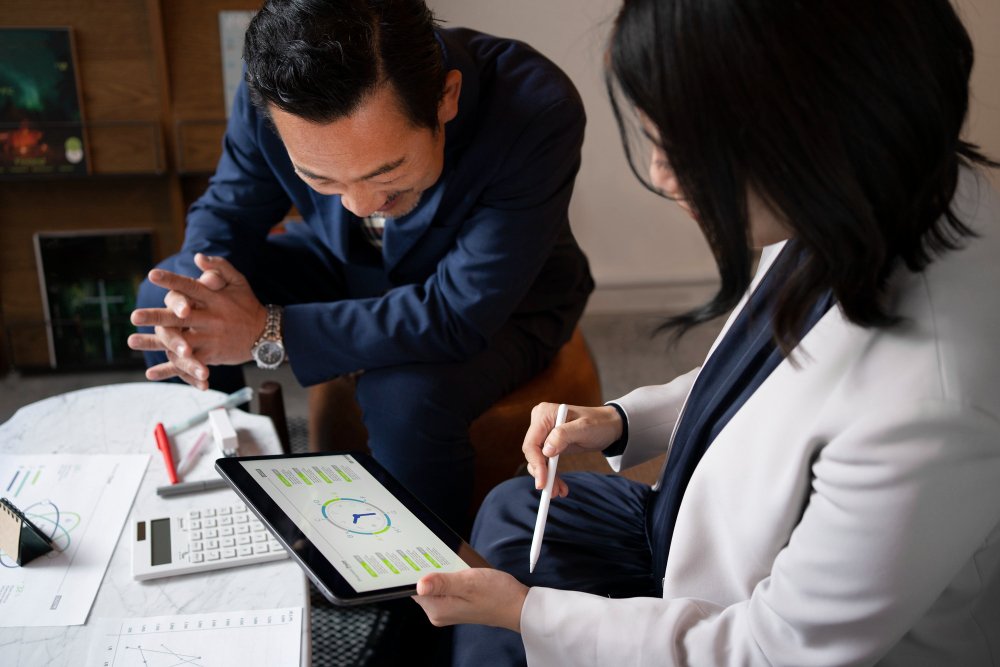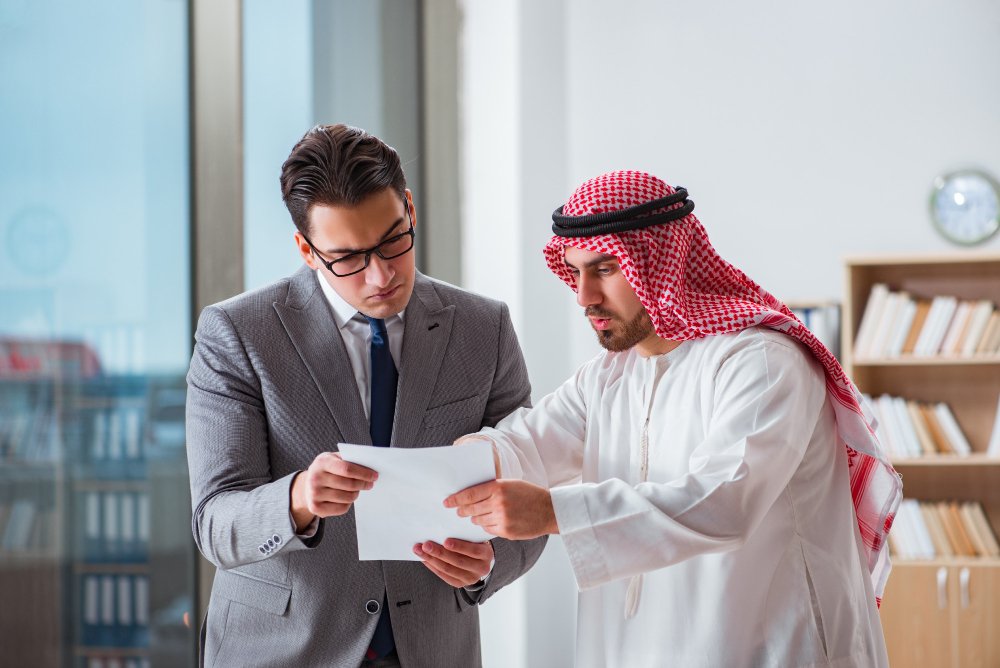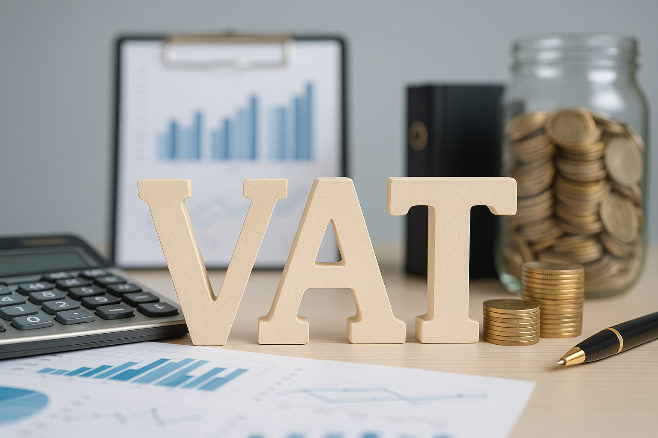- Who should register mandatory for VAT in U.A.E?
A business must register for VAT if the taxable supplies and imports exceed the mandatory registration threshold of AED 375,000 within the preceding 12 months. Upon registration, a tax registration number (TRN) would be issued to business by the Federal Tax Authority.
- When should a business voluntary register for VAT in U.A.E?
A business may choose to register voluntarily for VAT if the supplies and imports are at least half (AED 187,500) of the mandatory registration threshold (AED 375,000).
Similarly, a startup business may register voluntarily if their initial expenditure exceeds the voluntary registration threshold (AED 187,500) as the same has been designed to enable new start-up businesses with no turnover to register for VAT and to be eligible for input VAT.
Quick Enquiry
- Why should a business register for VAT in U.A.E?
VAT registration is beneficial for business because only a registered business can claim input VAT paid on its purchases and expenses as against a non-registered business who are end-users and are not entitled to claim VAT. In short, if you are a non registered business you lose input VAT and this would result in absorbing the input tax cost, resulting in selling price increase, loss of market competitiveness and stagnant business growth.
Apart from that, non-registration would attract fines and penalties that would be levied by the Federal Tax Authority (FTA). It is therefore important to get registered.
- Which document should be submitted by a business as a proof of turnover for VAT registration?
In house financial statements stating annual turnover duly certified by the management should be submitted as proof of turnover for VAT registration.
- Whether a business (L.L.C) has to disclose shareholding details of their sponsor (U.A.E national, 51%) in all other companies sponsored by him at the time of VAT registration?
Yes, a registered business (L.L.C) has to disclose shareholding details of their sponsor (U.A.E national, 51%) in all other companies sponsored by him including all trade license copies at the time of VAT registration.
- What is the Reverse Charge Mechanism?
A mechanism under which the recipient of goods or services is required to account for VAT instead of the supplier/service provider when the supplier/service provider is not a taxable person in the member state where the supply has been made. This applies to
- Imports from outside U.A.E
- Imports from G.C.C countries.
When a transaction is subject to reverse charge, the recipient of the goods or services reports both their purchase (input VAT) and the supplier’s sale (output VAT) in their VAT return to nullify their effect. These two declarations offset each other from a cash payment point of view, and at the same time, authorities have full visibility of the transactions.
- a) M/s. A Ltd. a UK based firm not registered in UAE provides legal advice to a company M/s. B Ltd in UAE for AED 10,000. The company M/s. B Ltd in UAE declares AED 500 as dummy input tax and AED 500 as dummy output tax in its return which is called a reverse charge mechanism.
- b) M/s. X Ltd. a firm registered in UAE imports goods from a Company M/s. Y Ltd in Indonesia for AED 50,000. The company M/s. X Ltd in UAE declares AED 2500 as dummy input tax and AED 2500 as dummy output tax in its return which is called a reverse charge mechanism.
- Whether non-residents are required to register for VAT in U.A.E?
Non-residents that make taxable supplies in the UAE will be required to register for VAT unless there is any other UAE resident person who is responsible for accounting for VAT on their behalf. This exclusion may apply, for example, where a UAE business is required to account for VAT under a reverse charge mechanism in respect of a purchase from a non-resident.
- Who is a Taxable Person?
Any person registered or obligated to register for tax purposes under the VAT Decree-Law No 8 of 2017 is called a taxable person. In simple terms, a taxable person means any person (natural or legal, corporation or not) conducting business to generate income whose turnover exceeds the mandatory threshold AED 375,000. He is a person who is subject to tax under the provisions of the relevant tax law.
- What are Taxable Supplies?
A supply of goods or services for a consideration by a person conducting business in the state, and does not include exempt supply.
Taxable supplies constitute of:
Standard rated supplies @ 5%.
Zero-rated supplies @ 0%
Reverse charged services received.
Imported goods
- Whether high seas sales constitute taxable supplies?
In the case of high seas sales, goods do not touch UAE therefore a place of supply is not UAE and would not constitute taxable supplies, hence No VAT should be charged by a taxable person.
- Any cost or reimbursement of the cost billed by the taxable person to the customer should constitute taxable supply?
Cost or reimbursement of the cost billed by the taxable person to the customer does not constitute taxable supply hence it is not subject to VAT. However, goods or services supplied for the price agreed would be subject to VAT.
- Whether the purchase of personal assets e.g. refrigerator, electronics constitute taxable supplies?
Personal assets purchased not in connection with business and do not form part of taxable supplies, hence it is not subject to VAT.
- Whether annual maintenance charges for services rendered to the residential and commercial property are taxable supplies?
Annual maintenance service charges are taxable supplies irrespective whether the property is residential or commercial, hence they are subject to VAT.
- Whether transport-related services such as shipment, packaging, preparation of customs documents, container management relating to the exportation of goods are part of taxable supplies?
Transport related services such as shipment, packaging, preparation of customs documents, relating to the exportation of goods and services are taxable supplies but charged at zero rate.
- What is a Deemed Supply? Whether tax is chargeable on Deemed Supplies?
Anything considered as a supply and treated as a taxable supply according to the instances stipulated below is a deemed supply. Yes, tax is charged on deemed supplies.
- A supply of goods or services, which constituted the whole assets of a taxable person or a part thereof, but are no longer considered to be as such, provided that the supply was made without consideration.
- The transfer by a taxable person of goods that constituted a part of his business assets from the state to another Implementing state, or from the taxable person’s business in an implementing state to his business in the state, except in the case where such transfer:
a) Is considered as temporary under the customs legislation.
b) Is made as part of another taxable supply of these goods.
For eg. Mr. B a taxable person of A Ltd in KSA transfers machinery of AED 50,000 to B ltd, a company owned by him in UAE, the transaction which is considered as a deemed supply.
- Supply of goods or services for which Input tax may be recovered but the goods or services were used, in part or whole, for purposes other than business, and such supply shall be considered as deemed only to the extent of the use for non-business purposes. For eg. A retail company M/s. A purchased watches for trading, on which input tax was claimed. However, at a later date, these watches were gifted to the owner and employees as gifts (non-business purpose). This would be considered as deemed supply and would be subject to VAT.
- Goods and services that a taxable person owns at the date of tax de-registration. For eg. On liquidation of a company, Inventory lying unsold would constitute deemed supplies and would be subject to VAT.
- In the case where goods are imported into UAE from outside GCC and import VAT was recovered in the UAE through the reverse charge under the expectation that goods would not be transferred to another GCC State, but at a later date they are moved to another GCC State, the importer will be required to “repay” the import VAT by treating the transfer as a deemed supply subject to VAT.
- Whether samples and gifts issued to the customer are subject to VAT?
Samples and gifts issued to the customer are considered to be deemed supplies since it is a supply made without consideration and subject to VAT.
- What is not considered as a taxable supply?
The following shall not be considered as a taxable supply.
- The sale or issuance of any voucher unless the received consideration exceeds its advertised monetary value, as specified in the Executive Regulation of the VAT-Law.
- The transfer of the whole or an independent part of a business from a person to a taxable person to continue the business that was transferred.
- What are exempt supplies?
A supply of goods or services for consideration while conducting business in the state, where no output tax is due and no input tax may be recovered, except according to the provisions of the VAT Decree-Law No 8 of 2017. In simple terms, exempt supplies are supplies on which no VAT is chargeable.
Exempt supplies include the supply of bare land, the supply of local passenger transport, specified financial services such as credit card annual fees, late payment fees and supply of residential property except for the first supply within 3 years of its completion which is zero-rated.
- What are Zero rate supplies?
Supplies on which VAT is charged at zero rate are called zero rate supplies. Zero rate supplies form part of the taxable supplies. Zero rate supplies include basic educational services, basic healthcare services, goods and services exported other than GCC, gold silver and platinum for investment purposes, international transport of passengers, the first sale of new residential property within 3 years from completion.
- Whether special medical services such as cosmetics, dentistry, plastic surgery are taxable at zero rate?
Special medical services such as cosmetics, dentistry, plastic surgery do not constitute basic healthcare services and related goods and services as specified in the VAT regulations and therefore are subject to zero rate of tax.
- What is the difference between Zero rate supplies and Exempt supplies?
The key difference between zero rate supplies and exempt supplies is that the suppliers of zero rated goods and/or services can still reclaim/refund full input VAT. But the suppliers of exempt goods and/or services are either not registered for VAT or if they are, they cannot reclaim their input VAT because they are end-users.
- What is Business defined as per Federal Tax Authority?
Any activity conducted regularly on an ongoing basis and independently by any person in any location, such as industrial, commercial, agricultural, professional, service or excavation activities or anything related to the use of tangible or intangible properties. An isolated transaction such as the sale of a car or furniture is not business since this activity is not conducted regularly on an ongoing basis.
- What is a Consideration?
All that is received or expected to be received for the supply of goods or services, whether in money or other acceptable forms of payment is called as consideration. For eg. M/s. A Ltd receives a loan of AED 50,000 from one of the partners. Loan received is not a consideration since it is not received for the supply of goods and services.
- What is the Input VAT?
Input VAT is the value-added tax added to the price at the time of purchase of goods or services liable to VAT in connection with the business. In simple terms, it means the tax charged by the supplier to the customer on good sold.
- What is the Output VAT?
The output VAT is the value-added tax calculated and charged on own sales of goods and services. In simple terms, it is tax paid by the customer to the supplier on the purchase of goods.
- How should a business determine the place of supply?
In case of a supply of goods, the place of supply should be the location of goods where the supply takes place with special rules for certain categories of supplies (e.g. water and energy, cross border supplies).
In case of a supply of services, the place of supply should be where the supplier is established with special rules for certain categories of supplies (e.g. cross border supplies).
- Why is the place of supply important in the case of Intra GCC transactions?
In the case of Intra GCC transactions, the place of supply will determine whether a supply is made in the UAE or outside UAE (GCC). This would help in determining which jurisdiction VAT is liable for payment by the taxable person.
B2B (Business to Business) Exports to GCC.
For eg. M/s. A is a registered business in UAE exports goods to M/s. B a registered business in KSA. In the example, the place of supply is KSA.
Export of goods: the place of supply is the other GCC State (e.g. KSA) provided:
- the customer is registered for VAT in the GCC State where the goods are delivered
- the goods are exported outside the UAE
- Who are related parties?
Two or more persons who are not separated on the economic, financial or regulatory level, where one can control the others either by Law or through the acquisition of shares or voting rights.
- What is a Tax group?
Two or more persons conducting businesses may apply for tax registration as a Tax group if all of the following conditions are met:
- Each shall have a place of establishment or fixed establishment in the state.
- The relevant persons shall be related parties.
- Who is a Tax Agent?
Any person registered in the register with the Federal Tax Authority who is appointed on behalf on another person usually a taxable person to represent him before the Federal Tax Authority and assist him in the fulfilment of his tax obligations and the exercise of his associated rights.
- Whether Output VAT can be claimed on credit sales for which money is not received i.e. bad debt?
Output VAT on credit sales which is bad debt can be claimed only if the below three conditions are satisfied.
- Consideration has been written off in full or part as bad debt in the supplier’s accounts and.
- Recipient of goods and services have been notified of the bad debt accordingly and.
- Six months have been passed from the date of supply.
- What are the causes for non-compliance of VAT law that would lead to the imposition of penalties?
Penalties will be imposed for non-compliance of the VAT law in the following cases:
- A person failing to register for VAT when required to do so.
- A person failing to submit a tax return or make a payment within the required period.
- A person failing to keep the records required under the issued tax legislation.
- Tax evasion offences where a person performs a deliberate act or omission to violate the provisions of the issued tax legislation.
- Under which conditions businesses will be allowed to claim input VAT on expenditure incurred?
The business will be allowed to claim input VAT on the expenditure incurred in the following conditions.
- The business should be a taxable person (the consumer/end-user cannot claim any input tax refund).
- Input VAT should have been charged & calculated correctly by the service provider. (I.e. unduly charged VAT is not recoverable).
- The business must hold documentation showing the input VAT paid (e.g. valid tax invoice).
- The goods or services acquired are used or intended to be used for making taxable supplies.
- VAT input tax can be claimed only on the amount paid or intended to be paid before the expiration of 6 months after the agreed date for the payment of the supply.
- Whether there will be any transitional rules?
Transitional rules will be provided to deal with various situations that may arise in respect of supplies that span the introduction of VAT from 1st Jan 2018. For example:
- Where a payment is received in respect of a supply of goods before the introduction of VAT ie.1st Jan 2018, but the goods are delivered after the introduction of VAT ie.1st Jan 2018, this means that VAT will have to be charged on such supplies.
- Where a contract is concluded before the introduction of VAT i.e. 1st Jan 2018 in respect of a supply which is wholly or partly made after the introduction of VAT ie. 1st Jan 2018, and the contract does not contain clauses relating to the VAT treatment of the supply, then consideration for the supply will be treated as inclusive of VAT.
- What is the minimum period for retention of the records?
The business should maintain records for a minimum period of 5 years as per FTA.
- What is the margin scheme?
When used goods are acquired by a registered person from an unregistered person for resale, the registered person should account for VAT on sales of used goods concerning the difference between the purchase price of the goods and the selling price of the goods (that is, the profit margin). The VAT which must be accounted for by the registered person will be included in the profit margin.
- a) Mr A a used car dealer sells a used car for AED 25,000 which was purchased for AED 15,000 at a gross margin of AED 10,000. In this case, VAT would be calculated on the gross margin of AED 10,000 (10,000 * 5%) equals to AED 500.
- Whether Freezone companies should be registered for VAT?
All businesses must register for VAT if the total value of its taxable supplies made within UAE exceeds the mandatory registration threshold of AED 375,000 per year.
- Is there any fine if original documents related to VAT are lost?
Yes, it will attract fine of AED 10,000 for the first time and AED 50,000 in case of repetition for not keeping required records and input VAT credit will also be disallowed.
- Whether the natural person (individual) needs to register for VAT?
Yes, if the natural person engaged in extra business activities other than regular business with trade license such as renting of commercial properties, freehold or otherwise from extra activities and if such income is more than minimum threshold of AED 375,000 must register for VAT.
- A tourist visiting UAE can claim a tax refund?
A Tourist who is not resident in any of the implementing states (GCC) will get a refund if he leaves the country with the goods within 90 days from the date of purchase is eligible for VAT refund subject to certain conditions imposed by authority.
- Whether a school needs to register for VAT?
The school should be providing educational services by the curriculum recognized by the Ministry of Education and other relevant authorities. In such case, tuition fees and sale of books will be zero-rated but fees from uniforms, school transport, canteen supplies and extracurricular activities will be subject to 5% of VAT.
- Whether water and telephone bills are subject to VAT?
Yes, water, electricity and telephone charges are subject to VAT.
- How is a mixed-use building (residential and commercial) treated for VAT?
The rent or sale of a residential part of the building shall be treated as zero-rated or exempt depending on whether this is a first supply or subsequent supply. The rent or sale of a commercial part of the building shall be treated as subject to VAT@5%
The tax incurred by the owner on the building needs to be apportioned when there is an exempt supply and the portion related to the taxable supply (at 0% and 5%) may be recovered.





